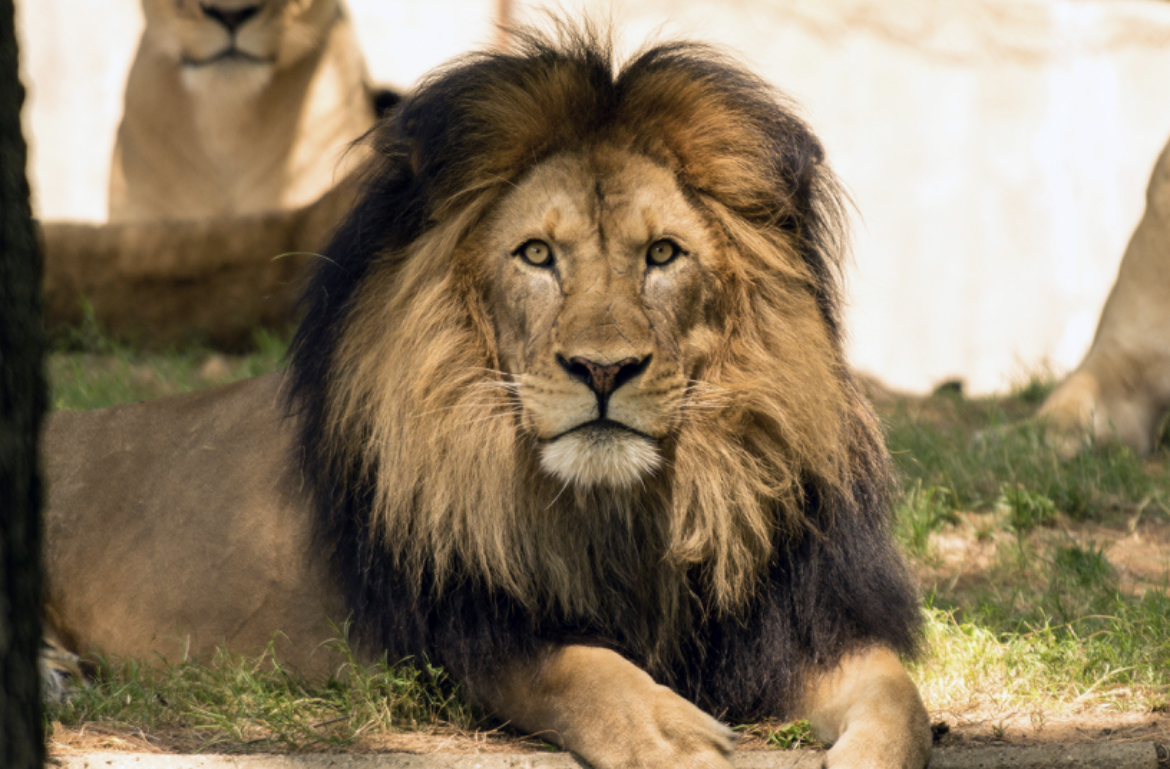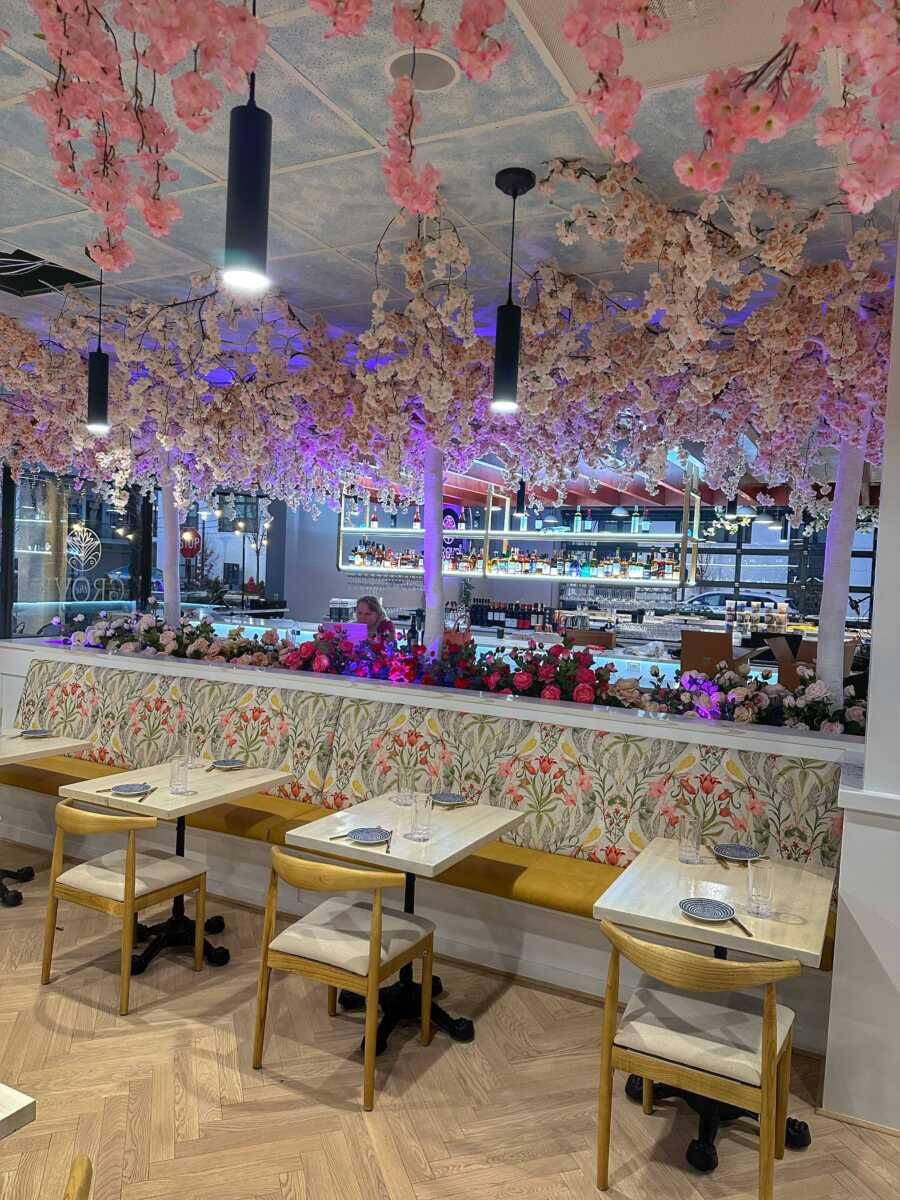
Per the Smithsonian:
Staff at the Smithsonian’s National Zoo and Conservation Biology Institute are mourning the loss of Luke, an African lion who was humanely euthanized Oct. 19. He was 17 years old. The median life expectancy for African lions in human care is 17 years.
Animal care staff had been treating Luke for occasional discomfort and lameness in his right forelimb since 2016 when keepers observed that Luke was not bearing full weight on his leg and was showing signs of significant discomfort. Veterinarians anesthetized Luke and examined his leg, shoulder, neck and spine. A CT scan revealed an intervertebral compressive disc lesion on Luke’s spine. However, staff elected not to perform surgery due to significant complications that could arise related to post-surgical care. Over the years, the veterinary team administered various treatments for Luke’s spinal disease: steroid injections, anti-inflammatory medications, other oral pain medications, and deep-tissue laser therapy, electroacupuncture and dry-needle acupuncture on the affected areas.
Luke was trained to voluntarily participate in awake health exams, including routine weigh-ins and blood draws. On Oct. 14, keepers noted that Luke had lost 8 kilograms, or 17.6 pounds, and he was experiencing repeated episodes of lack of appetite. An awake blood draw performed that day did not reveal any areas of concern. Early this week, keepers noted that Luke had a decreased appetite and appeared dehydrated; additionally, his hind limbs seemed to have generalized loss of muscle mass. During an exploratory exam Oct. 19 to identify the cause of his weight loss and lack of appetite, Zoo veterinarians found several cystic masses throughout his liver. They also found moderate-to-severe progression of his spinal condition—several of his cervical vertebra had fused. Given these findings, Luke’s overall long-term quality of life was considered poor, and the animal care team decided to humanely euthanize him. A final pathology report will provide more information in the coming weeks.
Born at a private reserve in South Africa in 2005, Luke arrived at the Zoo in October 2006 following a breeding recommendation from the Association of Zoos and Aquariums’ Species Survival Plan (SSP). The SSP scientists determine which animals to breed by considering their genetic makeup, nutritional and social needs, temperament and overall health. At that time, Luke was the most genetically valuable lion in the North American population because his genes were not represented in U.S. zoos. Together with his mates, Naba and Shera, Luke sired 13 surviving cubs from four litters. The cubs—born in 2010 and 2014—were transported to North American zoos for breeding and research. Zoo visitors can see Shera and her offspring Amahle, Shaka and Jumbe on exhibit or on the Zoo’s Lion Cam.
“Luke was truly the ‘king’ of the Great Cats exhibit,” said Craig Saffoe, curator of Great Cats, Kids’ Farm, Claws & Paws Pathway and Andean bears. “He was gentle with his mates, Naba and Shera, and an extremely patient and protective father to all 13 of the cubs he sired. Luke has left a lasting legacy, not only in the cubs he contributed to his species’ survival, but also in the millions of visitors who were able to gain a deeper knowledge of and appreciation for African lions because of who he was as the patriarch of his pride.”
Observing his behavior gave the Great Cats team valuable insight into lion breeding and cub rearing behaviors. His contributions to his species’ survival helped add to scientists’ knowledge about African lion reproductive physiology.
The formation of prides makes lions unique among the great cats, many of which are solitary animals. Hunting, disease and habitat loss have contributed to a decline in the population of African lions, which are considered a vulnerable species by the International Union for Conservation of Nature. During the past decade, lion populations have declined by about 30%. Currently, an estimated 20,000 lions remain in the wild.
Recent Stories
FEST OF SPRING Caribbean Wine Food & Music Festival
Get ready to experience the vibrant colors, tantalizing flavors, and infectious rhythms of the Caribbean at the FEST OF SPRING Caribbean Wine Food & Music Festival! Hosted by RHU LLC, this exciting festival is set to take place on May 18, 2024, at the picturesque 16700 Barnesville Rd in Boyds, MD.
Step into a world where the Caribbean spirit comes alive! From 12:00 PM onwards, immerse yourself in a sensory journey that celebrates the unique culture, cuisine, and music of the Caribbean. Whether you're an African American, a Reggae or Soca music enthusiast, a wine lover, or part of the vibrant Caribbean diaspora, this festival promises to delight and captivate you in every way.
Let the enticing aromas of mouthwatering Caribbean dishes tantalize your taste buds. Feast on traditional delicacies prepared by expert chefs, showcasing the rich and diverse culinary heritage of the Caribbean. Indulge in flavorful jerk chicken, succulent seafood, and delectable plantain dishes that will transport you straight to the islands.
Accompanying the culinary extravaganza is a carefully curated selection of premium wines, ensuring the perfect pairing for your palate. Sip on fine wines from renowned vineyards, each sip a reflection of the Caribbean's vibrant spirit. Discover new flavors, expand your wine knowledge, and savor unforgettable moments with every glass.
As the sun sets, get ready to groove to the infectious rhythms of Caribbean music. Feel the pulsating beats of reggae, soca, dancehall, and calypso, moving your body to the lively melodies. Live performances by talented musicians and performers will keep the energy high, ensuring a night of unforgettable entertainment.
Don't miss this opportunity to embrace the Caribbean spirit and celebrate the arrival of spring in style! Tickets are available on AllEvents, so secure your spot today. Join us at the FEST OF SPRING Caribbean Wine Food & Music Festival, where cultures collide and unforgettable memories are made.
LIVE PERFORMANCES By: CULTURE Feat. Kenyatta Hill, EXCO LEVI, IMAGE BAND, RAS LIDJ REGG'GO with Special Guest SUGAR BEAR FROM E.U. & MORE! & MORE!
MUSIC By: DJ ABLAZE, DJ SMALLY & NAJ SUPREME
2 NIGHT Camping packages available: RV/CAMPER $200 | TENTS $150 Starting on Friday May 17 @ 5pm | 30 RV SPACES | 30+ TENT SPACES
KIDS 12 & UNDER FREE!!!






